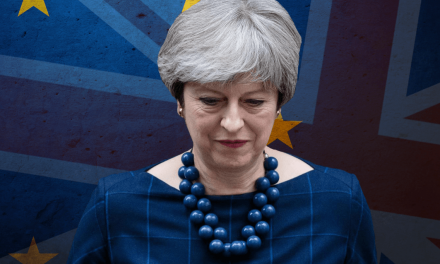The numerous problems being experienced by the Eurozone are completely expected, and have thankfully silenced Tony Blair and the other Euro-obsessives. Despite the imperial elite of Europe preaching that the problems are all behind them (despite unemployment being at its highest ever, and the debt problems no-where near being solved), turning on the European Central Bank’s printing machine is simply a way to make everyone in Europe poorer as a way of improving global competitiveness. Black Wednesday showed everyone that you can’t buck the market.
However, we in Britain should not fool ourselves into thinking that the voices of pro-Euro extremists have been vanquished and will never return. In reality, their zenith could only be a few years away.
Britain’s problems
Britain is still loaded down with debt. Despite the efforts of the Chancellor, the coalition government does not allow for the taking of the necessary action to reduce the deficit and debt burden. Over the next five years, £466 billion more debt is forecast to be added. And worse, it is not just public debt, but households are also still weighed down, having been encouraged to go on sprees they could not afford to support the illusion of growth held up by the previous Labour government. Average debt per person (including mortgages) is estimated to be nearly £30,000.
This debt exists and demands interest payment, undermining the confidence of investors and markets. And with interest rates so low, it would not take much for a slight rise to start wreaking havoc in Britain. Millions of families would no longer be able to pay back their mortgages; borrowing to finance investment would cease; spending would plummet; shops would close, people would become homeless, more jobs would be lost, the value of property would fall, shares would crash in value, and the entire financial system could fold-in on itself.
In such circumstances, the dire Eurozone could suddenly be presented to a suffering government as a solution (a quick look at how much power the European Commission is pushing to take shows just how much it loves taking advantage of a crisis). Marginalised egoists, like Blair, who see the Euro purely as a way of furthering their own ambitions to be President of Europe, would be thrust to the forefront of debate again, and having already deceived the country many times in the past, could once again help lead Britain in the wrong direction.
More than money
Economics, as such, must never be allowed to be the final reason and basis for making a decision about the future of the Pound. The economic situation is precarious, but Britain’s politicians need to think about more than just money: they are elected to govern the people, not just their finances.
And the Pound represents independence. We live in a democracy, and the rule of the majority is final. The majority of people voted for New Labour: the majority of people are now facing the consequences of making those votes. The ability to decide and choose one’s own future is fundamental, and as the EU moves further towards a unified banking union, where economic power is transferred further to the one central authority in Brussels, so the very foundations of post-war democracy in Europe are being wiped out. Joining the Euro might in the short term bring economic stability in the event of a crisis, but in the long term would leave Westminster as a puppet of the Euro-elite, who would relish the opportunity of taking revenge on London and stripping the troublesome City of its power.
The Pound is also identity. Genetic studies have shown that the Scots, Welsh and English are essentially one people: and one currency helps unite the different ideas prevalent within the constituent states of Britain into one nation. Britain is thus a definable entity apart from Europe, and the Pound is a symbol of that identity, and a powerful draw to international tourists. Without the Pound, Britain would be an appendage of Europe: “Oh, Europe, yes, we visited that” you can hear future foreign tourists saying, “I believe it was in the south, Marseille, Toulon and Genoa…” If Britain became a part of the European state, its value would be vastly reduced, and its identity lost in the melting pot of the continent.
Political leadership
We need political leadership to show that they understand that whatever the economic weather, Britain’s long-term interest is in remaining out of the Euro and as a constructive neighbour to Europe, but not as a subordinate to dictats from Brussels. Our freedom is worth more than economics.

